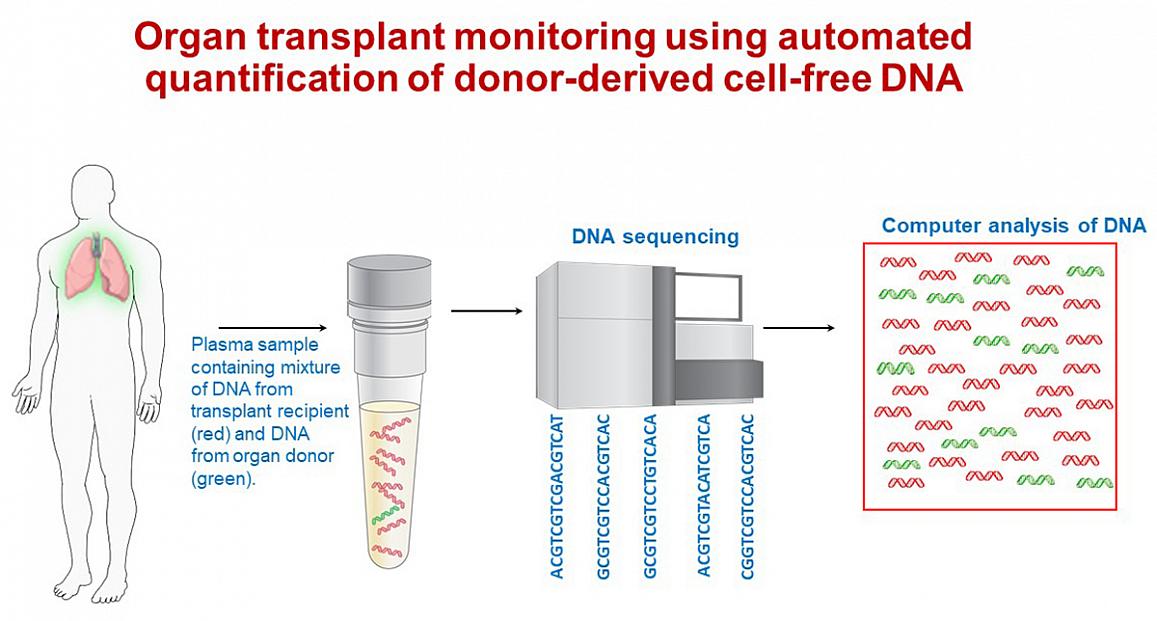Blood test shows promise for early detection of severe lung-transplant rejection
New tool that uses DNA sequencing could improve transplant outcomes and save lives
Researchers have developed a simple blood test that can detect when a newly transplanted lung is being rejected by a patient, even when no outward signs of the rejection are evident. The test could make it possible for doctors to intervene faster to prevent or slow down so-called chronic rejection — which is severe, irreversible, and often deadly — in those first critical months after lung transplantation. Researchers believe this same test might also be useful for monitoring rejection in other types of organ transplants. The work was funded by the National Heart, Lung, and Blood Institute (NHLBI), part of the National Institutes of Health.
The study’s findings were published Jan. 22 in EBioMedicine, a publication of The Lancet.
“This test solves a long-standing problem in lung transplants: detection of hidden signs of rejection,” said Hannah Valantine, M.D., co-leader of the study and lead investigator of the Laboratory of Organ Transplant Genomics in the Cardiovascular Branch at NHLBI. “We’re very excited about its potential to save lives, especially in the wake of a critical shortage of donor organs.”

This illustration depicts a new blood test that can identify early signs of lung transplant rejection using DNA markers from the organ donor.
This page was last updated on Friday, January 21, 2022